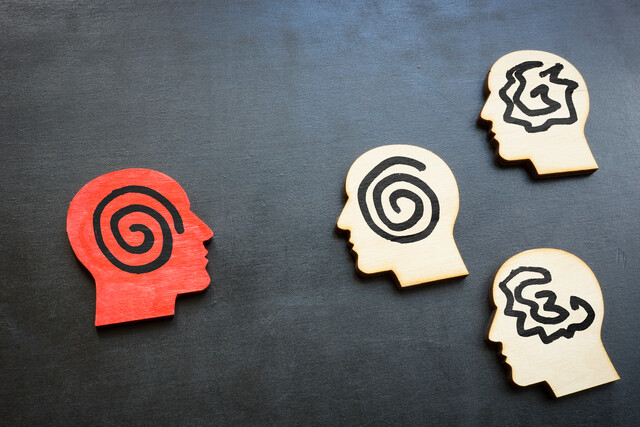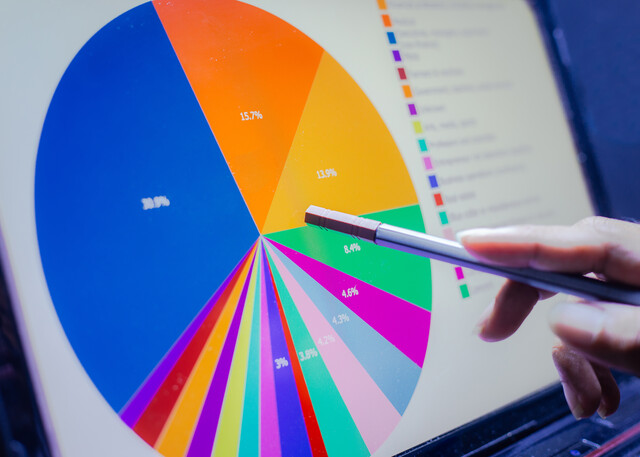Building up the psychological health of the workforce doesn't necessarily have to get complicated. Too many employers overthink it and end up making matters worse-they think that because the problems present in the workplace are often so complex that the solutions for them are as well. They go overboard and waste precious resources that could be better used elsewhere. What they don't realize is that sometimes the best thing you can do is simply change how you speak and act towards others in the workplace, and the ways in which they are acknowledged.
This article will look at employee recognition and the role it plays on the psychological health of the workforce. What is employee recognition and what's an acceptable way of using it in the workplace will be discussed. Additional topics will include the benefits it can offer for employees, employers, and the business as a whole, and what employers can do to improve their efforts.
What Exactly IS Employee Recognition?
There is typically a distinction between "recognition" and "reward" that many businesses try to stress with their recognition practices. Having your actions acknowledged does not necessarily equate praise or a reward for your efforts. Employers pay their employees for their work, but that is not the same as being rewarded and does not mean that the employee is doing good work. Any kind of reward that an employee receives in recognition for their actions or behavior is going to be separate from what they normally receive as an employee-e.g. salary, benefits, reviews, etc.2 Without that distinction, both in terms of attitude towards employee recognition and actual recognition practices, the entire process loses its value and therefore its effect on employees. While this may mean that employers have to put a little more effort into their employee recognition practices, it will be well-worth it in the end.
Is There A Right Or Wrong Way To Praise Employees?
Employee recognition should be appropriate to the circumstances that prompted it. Most employers choose specific criteria for their business' recognition system, with certain rewards being offered for certain actions.3 E.g. a big reward for a big accomplishment, small reward for a small accomplishment, etc. You don't make Steve "Employee of the Month" just because he showed up on time every day this month-the bulk of your staff probably fits that criteria-you give it to him because he made the most sales this month and went beyond what was required of him. The reward you give your employee needs to fit with what they did.
The Benefits Of Successful Employee Recognition
As with any feature of healthy workforces and respectful international workplaces, there are some benefits that they produce that make it worthwhile to get them right. With employee recognition, the benefits it offers are even more connected to how well it is executed. Sloppy or weak recognition and reward are not going to have the same kind of effects-or the same quality-as recognition and reward that is properly and appropriately done. In many cases, the benefits produced by successful employee recognition act as recognition for employers who correctly use the system.
Several of the benefits of successful employee recognition are similar to those of other healthy workforce features. It's to be expected-they all work together to produce a series of desired effects and they all feed into one another. However, there are some things that each component does bring to the table that makes it stand out from the rest. The benefits of employee recognition include:
High Impact At Low Cost-In most cases, employee recognition only costs employers their time and effort. Financially speaking, it is pure profit for the business as it literally costs nothing and it produces a high impact on employee performance, motivation, and effort.4 It's what causes correctly done employee recognition to have such a high payoff, including the other benefits discussed in this article, for everyone involved.
Builds Connections-When employers make an effort to acknowledge and recognize their employees' actions, it's another way of showing that they care. Many employees will actually perceive recognition as an acknowledgement of their value to their employer and to the company, which may be further impacted by what/how they are rewarded.5 Not only does this help encourage employee engagement-another feature of a healthy workforce-but it also allows for connections to develop between the presenter and recipient of the reward. Genuine recognition of an employee's good work translates to them as trust, which they then respond to with loyalty.
Employee Retention-As great as employee recognition may be, it is sadly underutilized or poorly done. This has had a significant impact on employee retention and turnover rates in the US. The primary reason given as to why members of the workforce quit or resigned from their jobs was that they felt underappreciated. When recognition is successfully utilized, about 68% of employees claim that employee recognition played a role in their decision to remain on staff in their respective workplaces.6 Business that have employee recognition systems in place tend to have higher retention rates and lower turnover-and therefore lower costs associated with turnover-than their peers that do not.
Expresses Company/Employer Values-Many business operate with a set of values and morals in place. It's expressed through the actions of the business in the community, the economy, and the world at large because those values act as a guide for the business. These values extend to the employer and the employees, who are effectively representatives of the business. Employee recognition is another action in which those values are expressed, albeit internally. In order for it to happen, both parties must be in line with those values. It reinforces those values and shows that the employer is effectively willing to practice what they preach.7
Since many businesses and employers do not do a good job with employee recognition, there is a strong need to improve the existing systems present in the workplace. A lot of employers, quite simply, need to step up their game and do a better job of showing their appreciation for their employees. Some of it may just require some improvement on delivery-how they show recognition-while others may need to work on the criteria for rewards or the types of rewards. In some cases, it could just be a matter of who is doing the appreciation and who is receiving it.
Whatever the reasoning may be, here are a few ways that you can improve employee recognition efforts in your workplace:
Peer Recognition-Employers are not the only ones who can acknowledge an employee's work. Peer recognition helps reaffirm the connections amongst staff members and allows co-workers to show their appreciation for each other. The actions that prompt recognition in workplaces that practice peer recognition tend to have a smaller, more personal effect with appropriate rewards to match. An example would be a thank you note and/or small gift for the driver(s) of an employee carpool.
Be Clear-It's hard for employee recognition to have an effect on people if they don't understand what they are being rewarded for. Too many people-employers and otherwise-end up being too vague or general in their recognition. Simply telling someone "good job" doesn't really get the point across whereas telling them what it is you're congratulating them for, e.g. a report or presentation.8 Being clear with employee recognition also applies to who is being awarded, especially in group settings; acknowledging each member of the team directly for their contribution will have a stronger impact than thanking the group as a whole for their work.
Choose The Right Person-Recognizing the wrong employee for something they didn't do will definitely not have a positive impact. People steal ideas or take credit for the work of others-it's wrong and childish, but it still happens in even the most prestigious of environments. Incorrectly rewarding the wrong person-thief or otherwise-often sends the wrong message. If it was due to stolen work, then employees may think that the employer condones the behavior and that it is encouraged. If it was due to laziness or sloppiness, then employees might think that the employer just doesn't care and damage the connection between them. Be sure that you've attributed actions or behaviors to the right person and, if you make a mistake, remedy the situation as soon as possible.
Use Technology-Technology is everywhere in today's society and it is acceptable for it to be involved in an instance of employee recognition. Remember that it doesn't have to be complicated. Email your thank you note if you cannot send a physical copy or do it in person. Call or text them if they've already left for the day. Use social media-company social media pages often post about major accomplishments. Some companies have a digital newsletter that they use to talk about current events and to acknowledge notable accomplishments. Technology doesn't diminish the sincerity behind the recognition if it is done well.
Use Normal Practices-Recognizing someone's accomplishments doesn't mean that employers have to do something big. Remember: the reward should match the action that prompted it. Employees can be recognized for doing a good job on something they do regularly. Greeting someone when you see them, saying 'thank you', or giving positive feedback on their work can be enough.10 These are normal practices that should be expected in a respectful workplace, but they're often things that are forgotten. The simple acknowledgement that these everyday things can be enough to show appreciation for employees for simply doing their job, and it also normalizes recognition in the workplace.
Gifts Accepted-Using gifts to recognize staff members for whatever reason is not uncommon. These are usually small incentives that can be easily given to an employee in recognition of their accomplishments and milestones, including personal ones in addition to professional ones (e.g. birthdays). Work anniversaries, for example, usually prompt a physical gift of some kind (e.g. certificates) to commemorate the occasion and offer gratitude.11 However, the use of gifts should still be appropriate to the occasion in which they are given AND to the workplace.

























